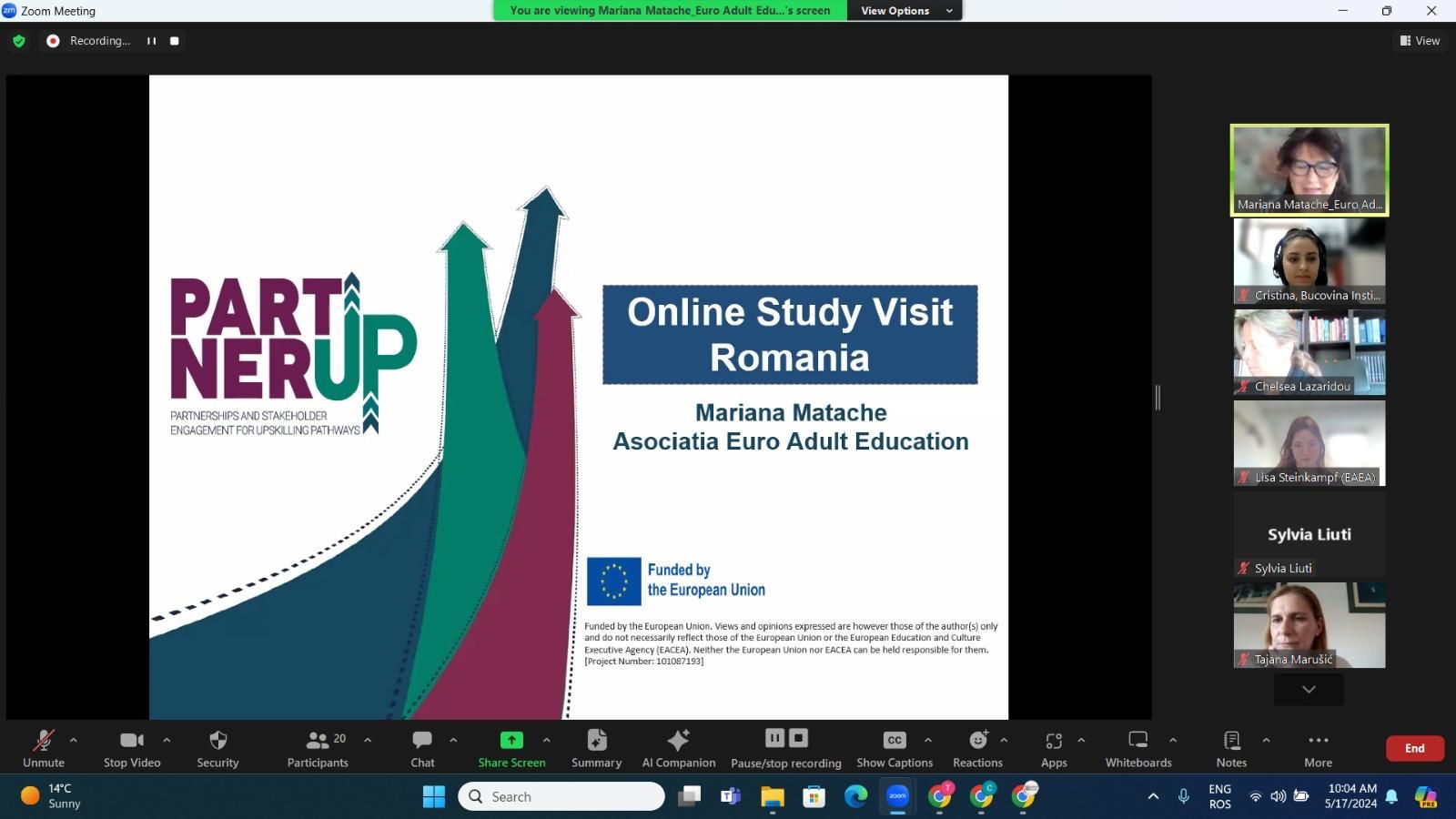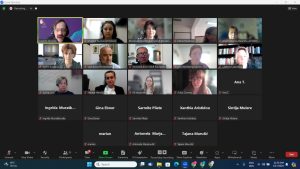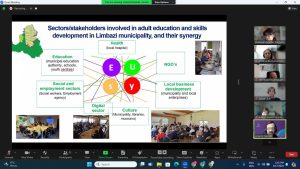6th Study Visit in Romania (online)

The 6th Study Visit of PartnerUp was hosted online by the Associatia Euro Adult Education in Romania on May 17th 2024. The study visit focused on the following objectives:
- Examining the current implementation of the Upskilling Pathways (UP) initiative in Romania, with emphasis on the legislative and social context, key measures, target groups, and challenges.
- Sharing experiences and practices regarding cooperation mechanisms and stakeholder structures in Romania.
- Engaging key actors and stakeholders at the regional level in project activities.
- Identifying transferable or adaptable good practices for other partner countries.
Key Themes Addressed
The visit highlighted:
- Key measures in place for Upskilling Pathways in Romania, including the Second Chance program.
- Best practices and challenges in implementing Upskilling Pathways, along with cooperation mechanisms among stakeholders.
- Opportunities for sharing good practices and exploring their applicability in different national contexts.
Structure of the Study Visit
- Welcome and Overview
The visit began with a welcome and agenda overview. - National Context and Challenges
Key actors in adult learning and education (ALE) presented the Romanian system, outlining the state of the art for Upskilling Pathways, challenges, and cooperation mechanisms. - Regional and Local Practices
Stakeholders and experts shared examples of regional and local practices, including successful collaboration models and ongoing challenges in Upskilling Pathways implementation. - Peer Learning and Reflections
Participants discussed lessons learned and identified elements to adapt to their contexts. The session emphasized peer learning and knowledge exchange. - Summary and Lessons Learned
The visit concluded with a summary of insights and recommendations for stakeholder engagement and cooperation improvement.
Key Issues Discussed
- Overview of Upskilling Pathways in Romania, including challenges and the legislative framework.
- Examples of regional and national cooperation mechanisms supporting Upskilling Pathways.
- Identification of stakeholders and strategies for increasing their engagement.
- Contributions from experts across institutions and organizations, sharing practices to strengthen stakeholder collaboration.
- Lessons learned from European experiences and recommendations for further collaboration.
Key Messages
- Effective measures, such as the Second Chance program and adult literacy/numeracy initiatives, are in place, though regional disparities persist.
- Romania utilizes funding from ESF and Erasmus+ to support Upskilling Pathways for low-skilled adults, but results can improve with stronger stakeholder cooperation.
- NGOs and social partners are vital in identifying skill trends and facilitating labor market access, with bottom-up approaches proving impactful.
Follow-up actions include sharing presentations and fostering connections among stakeholders and partners.


